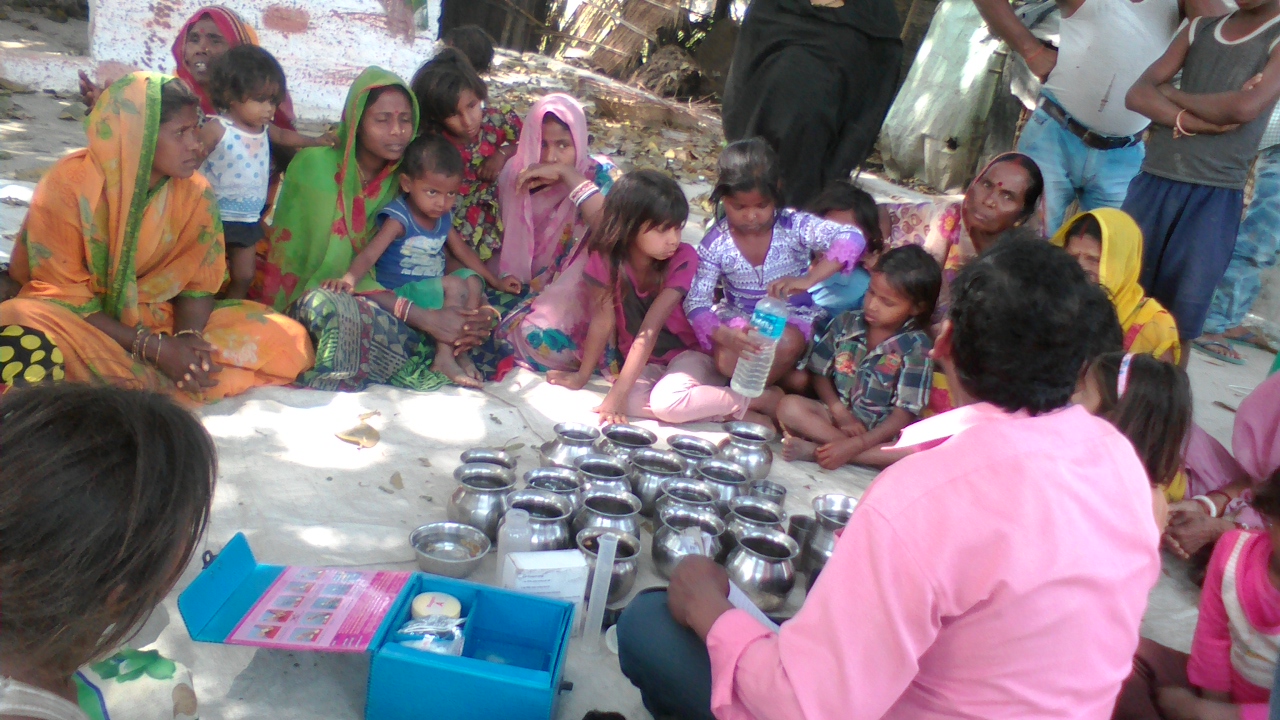Driven by the grim situation of groundwater contamination, in 2016, India Water Partnership (IWP) in collaboration with partner SM Sehgal Foundation under its core programme identified 37 villages in the Samstipur and East Champaran District of Bihar to mobilise communities to provide safe drinking water. Nearly 850 women and 1,750 men were trained through 80 trainings on water quality testing for arsenic and iron. Participants were Demonstrated on Jalkalp water filters (low cost and easy to maintain filter) as a measure to purify water and few of those water filters were donated as tokens to the communities after the trainings.
In 2017, the collaboration further expanded focusing on another 20 flood prone villages of the two districts, Samstipur and East Champaran of Bihar. Water samples of drinking water sources, especially from deep tube wells were tested for Arsenic and other impurities. Water quality monitoring using “do it yourself” field kits were demonstrated to women and youth and engaged them in testing samples for pH, Total Dissolved Solids (TDS), fecal coliform, arsenic and iron. The results obtained so far indicate high arsenic contamination in drinking water sources accompanied with iron and fecal coliform contamination.
In the coming months, several measures will be taken based on the level of contamination to ensure safe drinking water among villagers of Bihar. Stimulating the behavioural change of population through sensitization and awareness raising around safe drinking water and associated risks will be the most feasible solution with the given financing. IWP in partnership with SM Sehgal Foundation will develop Information, Education and Communication (IEC) materials explicitly designed for these villages as tools for trainings and demonstrations and for free distribution among the villagers. The task force will further popularise the JalKalp water filters as a measure to promote safe drinking water.
